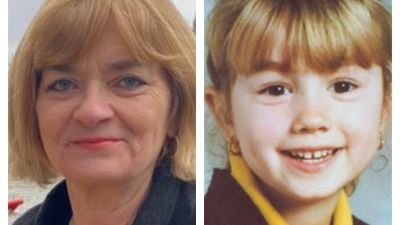Charity boss inspired by niece's death steps down after own battle with disease

A devoted aunt who threw herself into fundraising after losing a niece to cancer is stepping down from her charity work after undergoing treatment for the disease herself.
Sue Farrington Smith started raising money at her kitchen table after her niece Alison Phelan died of a brain tumour just three weeks before her eighth birthday in 2001.
She went on to found Brain Tumour Research in 2009 and has gone on to be a leading light in the fight for better treatments for children.
But after having extensive surgery for abdominal cancer Ms Farrington Smith said that despite making a good recovery, she felt it was time to step down.
She said: “I have always committed 100% of my energies to the success of the charity and our vision of finding a cure for all types of brain tumours but since my phased and now full-time return to work over the last few months, I have realised I no longer have the energy to be able to fulfil this role in the way that I would like and need to.”
Under Ms Farrington Smith's leadership, the Milton-Keynes charity became a leading voice in fighting for better treatment for patients.
It funds four centres of excellence and plans to establish another three.
The charity’s director of finance and operations, Ashley Bailey, will take over as interim chief executive until a new leader is appointed.
Ms Farrington Smith, who was presented with an MBE by the late Queen in 2017, described her time at Brain Tumour Research as “the most fulfilling years of my life”.
She will now take up a new role as a trustee of the charity.
Wendy Fulcher, Brain Tumour Research’s chair of trustees, who lost her husband to a brain tumour, paid tribute to the part Ms Farrington Smith had played.
“In the 20 years that we have stood together fighting to improve options and outcomes for those diagnosed with a brain tumour and their families, Sue has been the staunchest of allies and the fiercest of campaigners.
“Her energy levels have been legendary and her leadership and management of the growth of Brain Tumour Research show just what passion and drive can achieve. I am proud of her legacy and her trailblazing work, which will be continued by the charity, but I am also proud to call her my friend and colleague."
The charity said brain tumours were the biggest cancer killer of children and adults under the age of 40 yet, historically, just 1% of the national spend on cancer research had been allocated to the disease.
Brain Tumour Research now employs a team of 60 people.
Want a quick and expert briefing on the biggest news stories? Listen to our latest podcasts to find out What You Need To Know